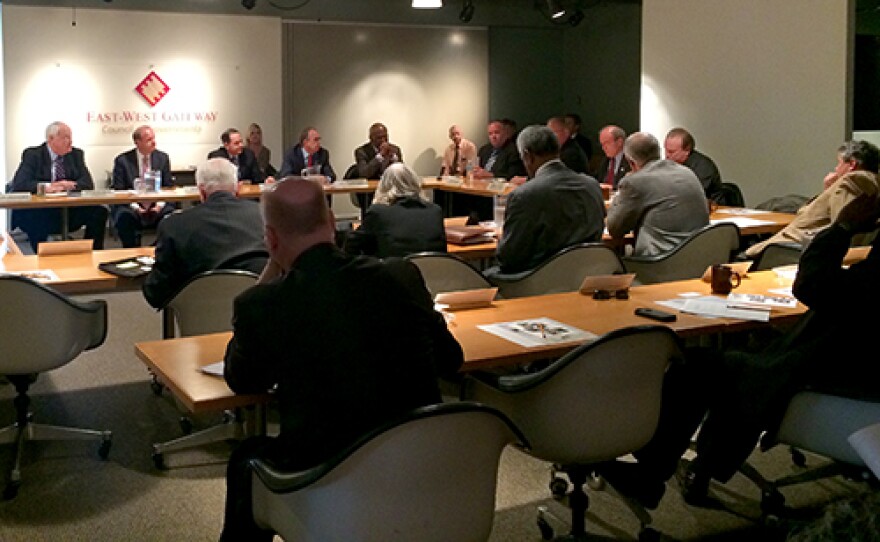The St. Louis region received poor marks in a new report Wednesday that compares its levels of racial disparity and segregation to 34 similar metropolitan areas.
The report is an update to the East-West Gateway Council of Government's Where We Stand, which compiles data in order to measure the region on a yardstick with its peers across the country.
In this update, the comparison was grim. In seven of the ten indicators of racial disparity, the St. Louis Metropolitan Statistical Area (MSA) ranked in the top 10 regions.
According to the report, blacks are more than three times as likely to be poor as whites in the St. Louis MSA, and more than twice as likely to be unemployed. The median income of black St. Louisans is almost half that of white St. Louisans. And black babies are more than three times as likely to die before their first birthday as white babies in St. Louis.
The report also found that St. Louis has been slower to integrate its population, making the region the 6th most segregated. St. Louis scored 70.7 out of 100 on a black-white segregation index, where 100 means the community is completely segregated.
St. Louis Mayor Francis Slay is chair of the East-West Gateway board. He said the region needs to take action on the report, and not consider it just another report on a long-standing problem.
“What we need to do as a community is take this stuff seriously, and not just the city taking a look at these issues and not just North County, but the entire region. We need to collaborate more. There’s got to be more ownership regionally,” Slay said, adding that a regional economy calls for a regional plan to create jobs and increase economic equality.
East St. Louis Mayor Alvin Parks is also on the council's board. He said two things need to happen in order to lower the black unemployment rate:
"One of the ways that you stop it is that you make sure that first of all individuals are trained to be in the workplace. But second of all you've got to make sure that the jobs come to the respective communities," Parks said.
Parks said he is especially excited about a new plan to create a regional freight partnership.
"We as the St. Louis region ought to be a place that is teeming with all kinds of financial opportunities because of the transportation network that exists here,” Parks said.
St. Louis County Executive Charlie Dooley said the region needs a long-term strategy to be more inclusive.
“We need to recognize our failings in order to fix them,” Dooley said. “Equality in employment won’t happen until we’re a more integrated society.”
Loading...
Follow Camille Phillips on Twitter: @cmpcamille

